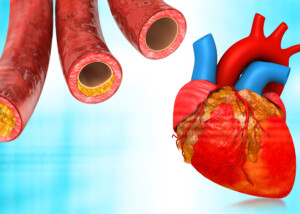
Find out what the latest research says about calcium intake and heart disease.
Milk is rich in calcium, and calcium deposits correlate to degree of heart disease, says Mayoclinic.com.
A calcium score of zero means no measurable coronary plaque buildup. I had my calcium score taken 17 months ago and it was zero, and since then (as has always been), I’ve been drinking up my milk.
A new study from the Institute for Aging Research at Hebrew SeniorLife concludes that there is no evidence of an association between calcium intake (which of course would include milk) and coronary artery calcification.
This is good news for milk drinkers such as myself, but also for people who take calcium supplements. The report is in the Nov. 7, 2012 American Journal of Clinical Nutrition.
The paper reports that subjects who had the greatest intake of this mineral (either from diet or supplements) had the same coronary artery calcium score as did subjects with the lowest intake of the mineral.
The report reminds people that the calcium score is very representative of the severity of calcified plaque buildup in coronary arteries.
The higher the score, the more plaque buildup, and in turn, the higher the likelihood of severe heart disease and a near-future cardiac event such as a heart attack.
“There was no increased risk of calcified arteries with higher amounts of calcium intake from food or supplements,” explains lead study author Elizabeth (Lisa) Samelson, Ph.D., associate scientist at IFAR.
The results of this study contradict the concerns in recent years that use of the supplements can raise the risk of heart attack.
The Institute of Medicine concludes that clinical trials do not provide evidence of this.
So the latest, then, is that you can feel safe drinking milk or having milk with your cereal.
Dr. Samelson does add, however, that for those wanting to take supplements, they should discuss appropriate doses with their physician.
If you’re concerned about your heart health, you can be very proactive by having your calcium score taken.
The procedure takes about five minutes, and as a screening tool, it likely will not be covered by your medical insurance.
The cost is anywhere from around $200 to $400. Don’t keep putting this off because of the cost.
 Lorra Garrick has been covering medical, fitness and cybersecurity topics for many years, having written thousands of articles for print magazines and websites, including as a ghostwriter. She’s also a former ACE-certified personal trainer.
Lorra Garrick has been covering medical, fitness and cybersecurity topics for many years, having written thousands of articles for print magazines and websites, including as a ghostwriter. She’s also a former ACE-certified personal trainer.
.









































